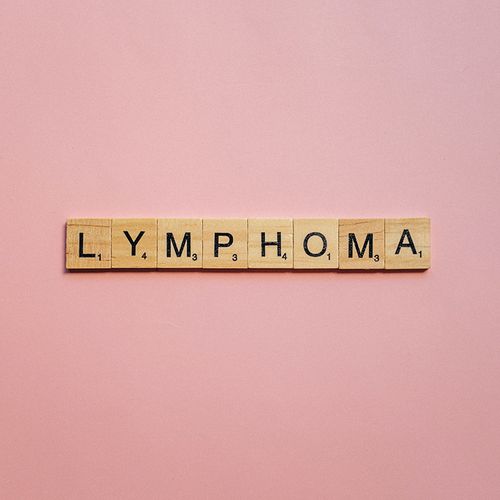In 2011, about 75,000 Americans were diagnosed with lymphoma (cancer of the lymph nodes). The majority of these cases are non-Hodgkin's lymphoma (NHL).
What Is Lymphoma?
Lymphoma is a cancer that affects lymphocytes, the white blood cells of the lymphatic system. Symptoms include a painless lump in the neck, armpit, groin or abdomen, unexplained weight loss, fever and night sweats. Hodgkin's lymphoma, which tends to strike adolescents and young adults, is highly treatable. NonHodgkin's lymphoma, on the other hand, can occur at any age and can be more difficult to treat depending on the specific type and how far it has progressed.
What you may not know: High-grade (aggressive) NHL is actually more curable than low-grade (slow-growing) lymphoma—with a 70% cure rate. That's because low-grade lymphoma, which may cause few symptoms, is usually quite advanced when it's diagnosed. While there's no cure for low-grade NHL, patients with these cancers can go into lengthy remissions.
Good news: Increasingly, doctors are finding that the old-standby treatments (radiation, chemo, immunotherapy and stem cell transplantation) can be enhanced with new medications to the point of curing (sending the cancer into permanent remission) a growing percentage of people with aggressive lymphoma, while low-grade lymphoma patients are living considerably longer than they used to.
The most promising newer medications…
New Drug Treatments
- Monoclonal antibodies. One of the key advances in lymphoma treatment involves immunotherapy drugs called monoclonal antibodies-injectable medications that attach themselves to a designated protein on the malignant cell's surface, making it easier for the immune system to attack the cell.
- Rituximab (Rituxan), one of the first monoclonal antibody drugs, attaches to the CD20 protein found only on B lymphocytes, a type of white blood cell. It is very effective at targeting tumor cells while sparing normal cells. Approved by the FDA in 1997, rituximab is considered the standard of care for B-cell lymphomas. It may be used alone for low-grade lymphomas or in combination with chemotherapy for high-grade forms,
What's new: The use of rituximab is continuing to expand as it is tried with different drug combinations.
Also: A recent study found that using rituximab to treat asymptomatic non-bulky follicular lymphoma, a slow-growing lymphoma that forms in B cells, instead of the traditional watch and wait" protocol, extended the time before chemotherapy was needed from a median of 25 years to a median of four years.
- Brentuximab vedotin (Adoetris), another exciting new drug, consists of an antibody linked to an intracellular toxin. The drug, which targets CD30 receptor proteins on the tumor cell, has produced very good results in Phase I and Phase II trials.
What's new: The medication was approved August 2011 for relapsed Hodgkin's lymphoma (lymphoma that went into remission but then recurred), providing an important new therapy for these patients. It is now considered a first-line therapy for Hodgkin's and anaplastic large-cell lymphoma, a rare, aggressive form of lymphoma that affects T-cells.
- Radioactive monoclonal antibodies. Radioactively tagged CD20 antibodies are also being used to deliver doses of radiation to tumor cells.
What's new: The FDA has approved two such agents, tositumomab conjoined with radioactive iodine (Bexxar) and rituximab conjoined with Yttrium-90 (Zevalin), for relapsed low-grade lymphoma and transformed lymphoma (lymphoma that turns from low-grade into high-grade).
These treatments have somewhat better results than rituximab alone but also have more side effects including low red or white blood cell or platelet counts) than rituximab alone and must be administered by a radiation oncologist
- Chemotherapy. The four-drug chemotherapy known as CHOP (cyclophosphamide, Hydroxydoxorubicin, Oncovin and prednisone) has long been standard treatment for many types of NHL, including diffuse large B-cell lymphoma. In recent years, this protocol has been expanded to include rituximab (a combination called R-CHOP).
What's new: Phase III trials are under way comparing R-CHOP with a protocol that combines rituximab with a more aggressive chemotherapy treatment called EPOCH-CHOP plus a medication called etoposide (Etopophos). This study will tell us if it is more effective than the standard R-CHOP
Also: Pralatrexate (Folotyn) recently received fast-track approval for peripheral T-cell lymphoma, an uncommon NHL that's more difficult to treat than the more common B-cell lymphoma.
Drugs Currently Being Tested
In addition to the above drugs, all of which have been approved or are near approval, a number of very exciting lymphoma drugs are currently in Phase I and Phase II trials. For example…
- Lenalidomide (Revlimid). This oral medication, already approved for multiple myeloma and myelodysplastic syndrome, a condition in which bone marrow produces misshapen blood cells, has also shown remarkable effectiveness as a single agent for some forms of relapsed lymphoma-including diffuse large B-cell lymphoma (28% improvement rate)...mantle cell lymphoma, a rare type of B-cell lymphoma (42% improvement rate).. and transformed lymphoma (45% improved response rate).
- Everolimus (Afinitor). This oral medication, part of a class called mTOR inhibitors, which are a novel class of anticancer drugs, shows good effectiveness as a single agent when used to treat relapsed lymphoma.
Clinical trial information: Talk to your doctor to see if one is appropriate for you. Also visit www.clinicaltrials.gov and www.majo clinic.org to find trials for a specific condition, eligibility requirements, locations and contact information.
